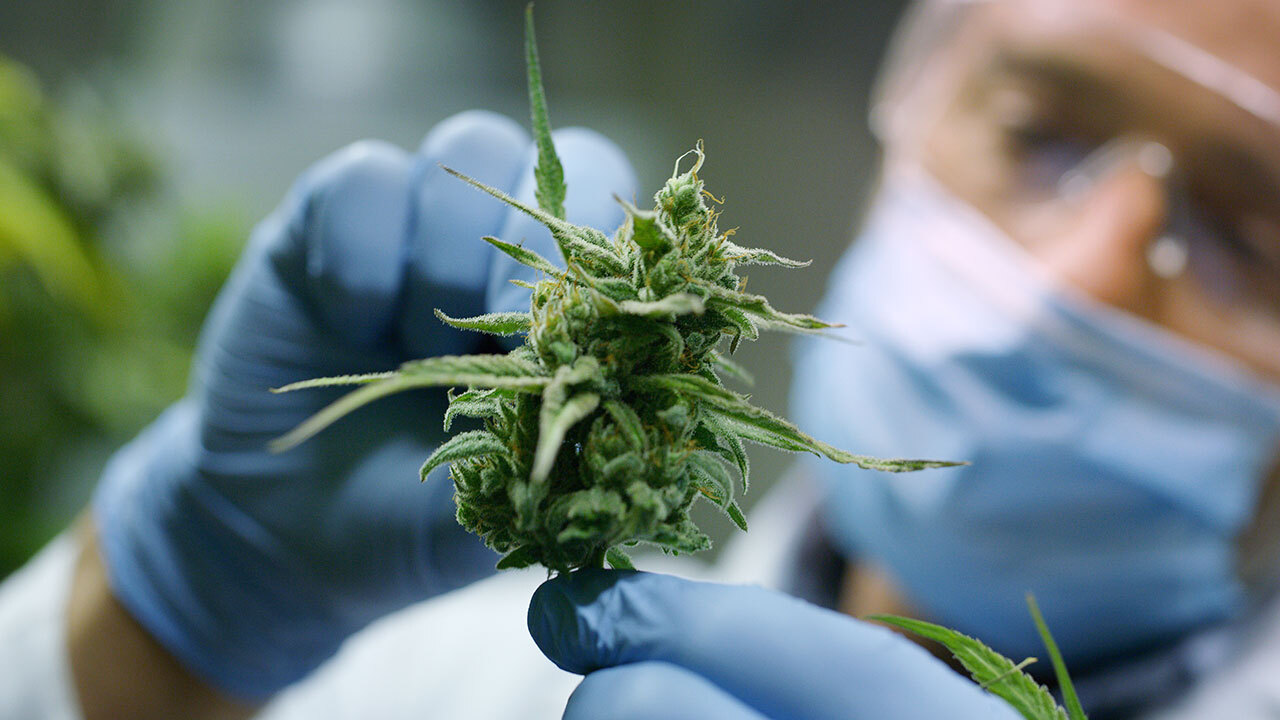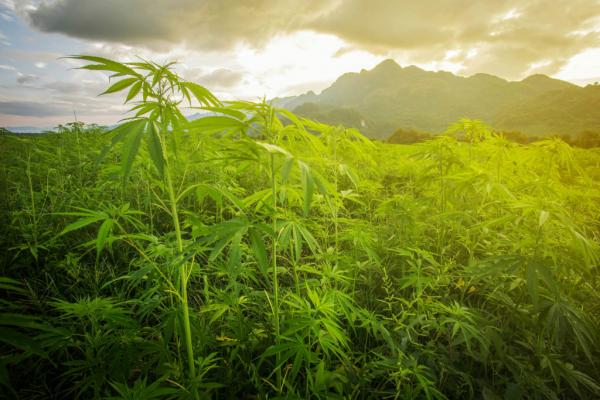There’s one minor cannabinoid that’s having a major moment, as of recently. THC Delta-8 THC, the lesser-known THC compound is gaining notoriety. Not only for its legal status but the unique effects too. So, what is delta 8 THC and why is the compound trending now more than ever? Keep reading, as we expore all the latest.
A spotlight on delta-8 THC
Even though there are nearly 144 cannabinoids found in cannabis flower - it’s not everyday you hear about those that are considered ‘minor’. So, why exactly is there a new spotlight on delta 8 cannabis? For one, the US 2018 Farm Bill is causing some legal confusion on whether or not it can be sold nationwide, like CBD.
A rise in THC delta 8 popularity has come from the spike in CBD extraction. As processors began to manipulate and isolate hemp material, the minor cannabinoid became a common and abundant byproduct. The 2018 Farm Bill explicitly states that any plant byproducts are permissible to sell. With the only exception being THC delta-9.
Technically, THC delta 8 has a similar molecular structure as THC delta 9 but with one key difference. Both share a ‘double bond’ that is responsible for a part of the cannabinoid’s psychoactive effects. However, THC delta 8’s double bond is found on its eighth carbon. THC delta 9’s double bond is on its ninth.
This difference not only allows delta 8 cannabis to slide by on a legal technicality but changes the effects of the cannabinoid upon consumption, too.
The delta-8 THC difference
To put it simply, the double bond difference affects the intensity of THC’s effects between delta 8 vs. delta 9. Those who often consume delta 8 THC, often describe the buzz as a ‘light’ form of the THC we commonly consume. Meaning, it shares the same intoxicating type of effects, but without the same intensity.

For instance, delta 8 THC effects include -
- Elevated moods
- Euphoric feelings
- Mild relief of pain
- Mild relaxation
The lack of intensity also provides a clearer high for the mind. Many report experiencing less anxiety, so delta 8 THC benefits are becoming popular amongst users who are sensitive to delta 9’s potent effects.
Looking forward for delta-8 THC
While the initial excitement over the discovery of delta-8 hasn’t worn off, it’s about to for a few states. Now that more attention has been drawn to the minor cannabinoid, lawmakers are making moves necessary to ban it. With 12 states already successful in implementing bans. Including -
- Alaska
- Arizona
- Arkansas
- Colorado
- Delaware
- Kentucky
- Idaho
- Iowa
- Mississippi
- Montana
- Rhode Island
- Utah
North Dakota, Alabama and Oregon are three other states that already have legislative language in motion, too. This list may have you wondering - why ban THC delta 8 in states where cannabis is legal? Such as Colorado and Oregon? Basically, it all comes down to regulation. Currently, CBD manufacturers are able to produce delta 8 cannabis products under the federal 2018 Farm Bill, negating individual state medical or recreational laws.
Instead of bans, some states like Florida are deriving their own legal framework for the future of delta-8 THC use. Considering retail sales of delta 8 flower and goods was $10 million in 2020 - it’s a topic states and producers will need to sort out. This may be one reason why the DEA took some federal action in August of 2020.
An Interim Final Rule (IFR) document was published then, to update and verify hemp and cannabis language. The rule states - “All synthetically derived tetrahydrocannabinols remain Schedule I controlled substances,”. Under this rule, technically, delta-8 THC would be illegal since it’s synthetically derived from extraction.
Between the 2018 Farm Bill, this DEA IFR, individual state laws, and federal laws - exact legalities of delta-8 THC is up in the air for now. For consumers, this means the purchasing of THC delta 8 cannabis goods can be somewhat sketchy. As there are no exact regulations for testing or safety.
A growing perspective on delta-8
On the growing side of things, early research is showing that delta-8 THC is a degraded form of delta-9 THC. So, when growing plants past their harvest date, or during the drying and curing phase - delta 9 THC can transform into delta 8 THC. For growers who are now looking to meet the demand for delta 8 THC supply, this is crucial information to know. Now, the cultivation scene will be working towards specific techniques to increase levels of the minor cannabinoid.
Whether growing or consuming, it’s always important to keep in touch with the latest industry trends. So, stay tuned for more timely news to come, as the cannabis market as a whole keeps evolving.









